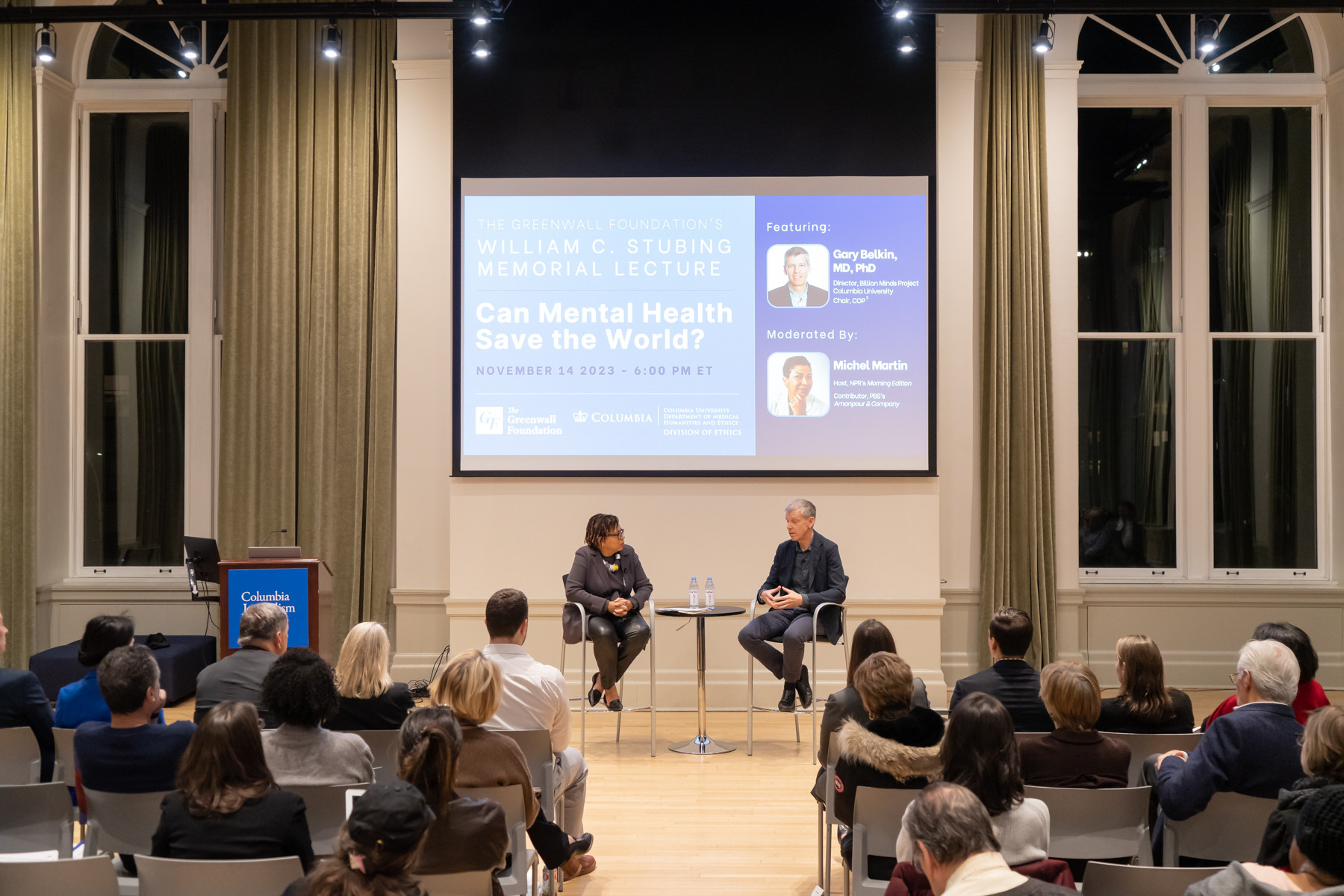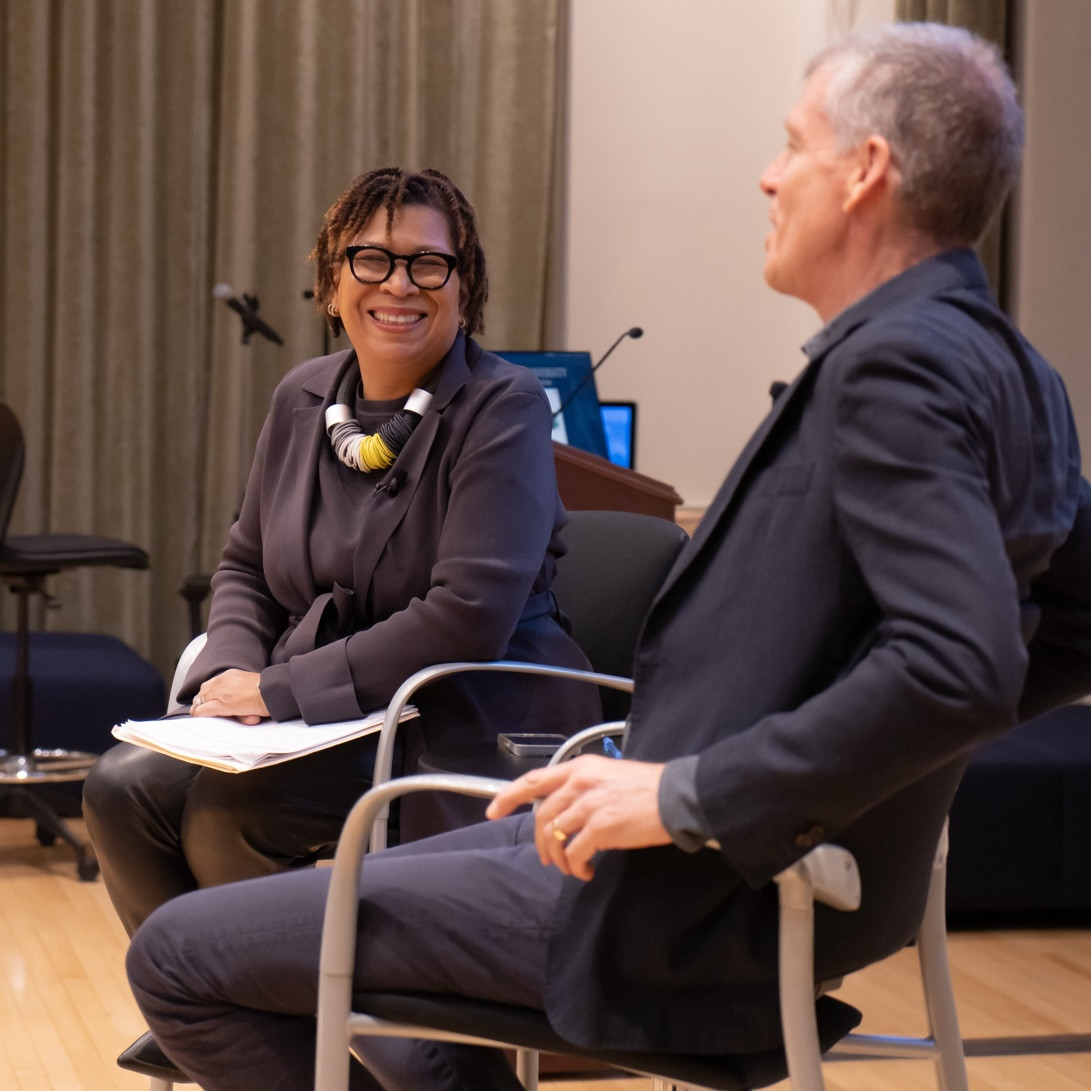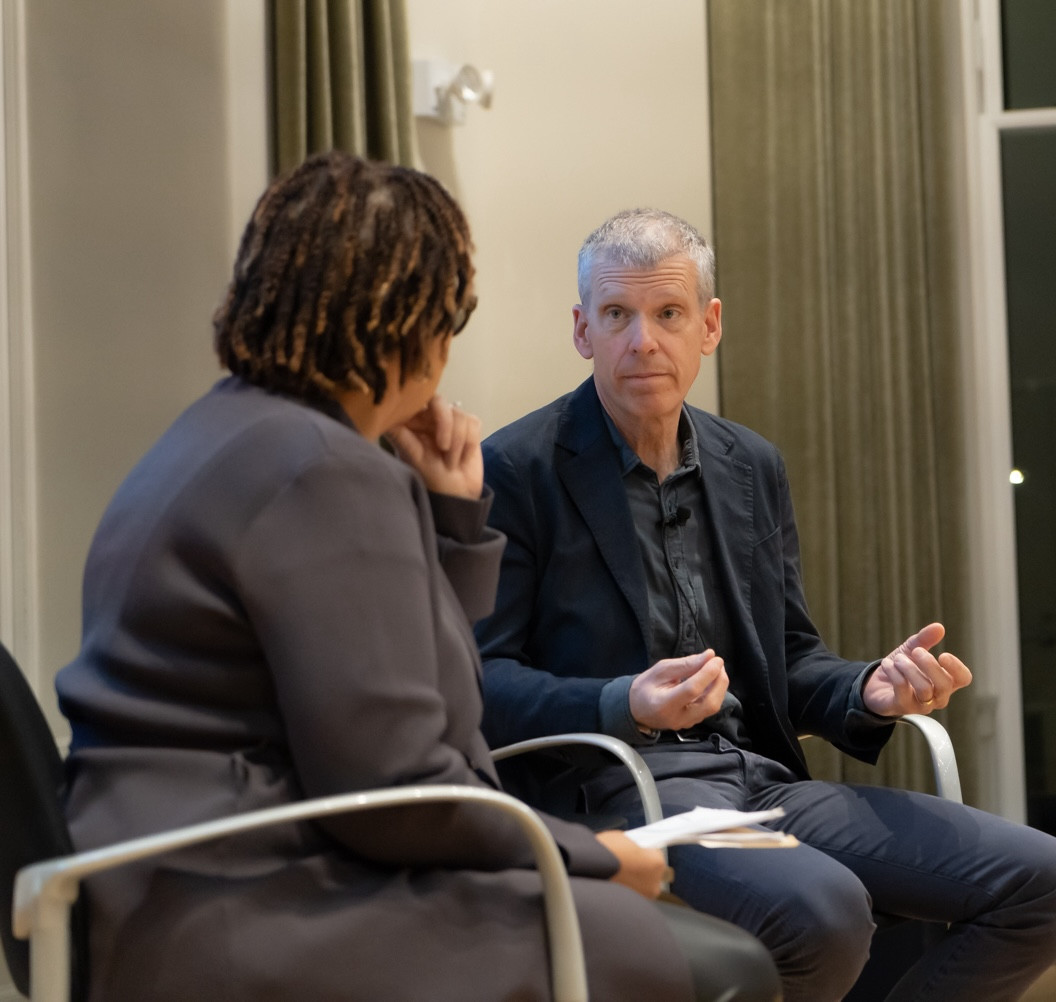On November 14, 2023, The Greenwall Foundation presented the William C. Stubing Memorial Lecture at Columbia University’s Pulitzer Hall. The event, in partnership with the Columbia University Division of Ethics, featured an insightful dialogue between Dr. Gary Belkin, a psychiatrist and public health expert, and NPR and PBS reporter Michel Martin. The Lecture centered on Dr. Belkin’s perspective on mental health, not merely as an individual concern but as one intertwined with social policy and community wellbeing.
Navigating the Intersections of Mental Health, Community, and Climate Change: Insights from the 2023 Stubing Lecture

Ms. Martin began the event with an exploration of Dr. Belkin’s background and path to psychiatry. Describing how an exposure to personal tragedy motivated a move into the field, Dr. Belkin said, “We do this whole mental health thing in very… constrained ways that aren’t out there where the hard stuff is happening.” For Dr. Belkin, “out there” is the communities and environments in which people carry out their everyday lives.

Bringing about positive change in mental health outcomes, Dr. Belkin suggested, requires “go[ing] upstream,” integrating mental health considerations into various aspects of community life—from schools and workplaces to urban planning—”embedding [mental health] work in other work” and ”changing the real estate of how health work [is] done,” he explained. “We actually know how to promote hope, how to promote pro‑social sorts of connections. We know how to buffer people from depression and trauma. But it’s communal work,” which cannot be restricted to traditional mental health care contexts or traditional mental health practitioners.
To confront the challenges that climate change presents will require this sort of community building, including repairing some of the frayed social conditions upstream of the mental health crisis. The COVID-19 pandemic, Dr. Belkin said, made it easier to persuade stakeholders of this point, “because people get what happens when the social fabric unravels and how it affects or makes it really hard for us to do things together…. COVID is a walk in the park compared to what climate change…will do in terms of that unraveling of social fabric, of the…challenging of our desire, of our valuing collective advocacy and reciprocity of social ties, of the…connective tissue” that unites communities. “The mental health community,” Dr. Belkin argued, “has to realize it is really critical to sustaining a social backbone to have a…life and community that we feel we can live and endure with, [given] the challenges ahead.”

The insights about how to connect trauma and other mental health conditions to community and environmental factors, Dr. Belkin said, are not new. One reason that these connections still need to be made, however, is that “we lack a certain connection…to democracy as about care—as about exercising care.” His work in bioethics has “looked at medicine as an unheralded and underpowered…broker for trying to bring knowledge to bear in a very problem‑solving, pragmatic way.”
To further the exercise of care, Dr. Belkin concluded the event with a call to the audience to “find a community that’s important to you” and “talk to people to find what they need to be a caring and nurturing contributor, and help them get there.”
About the William C. Stubing Memorial Lecture
William C. Stubing served as President of The Greenwall Foundation for 21 years. In 2016, the Foundation established the William C. Stubing Memorial Lecture in honor of its beloved former President, who guided the Foundation to its current focus on bioethics. Previous Lectures have covered timely topics in bioethics: automation and inequity in healthcare, the public health and ethical challenges of COVID-19, the social inequities revealed by the pandemic, physician aid-in-dying, drug pricing, and genome editing.